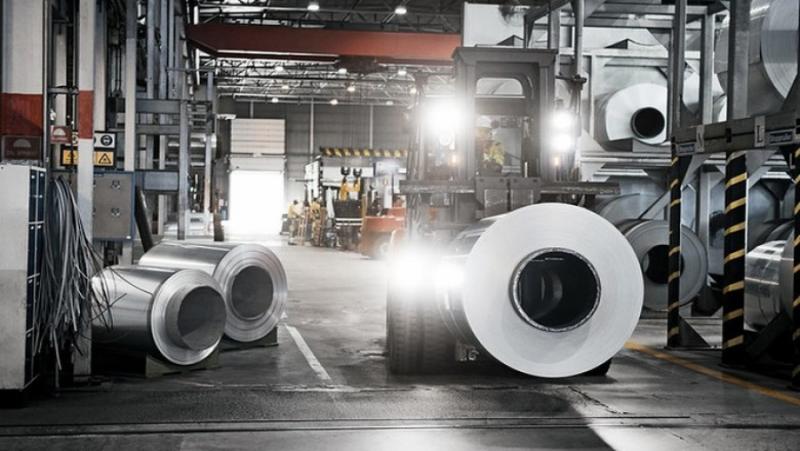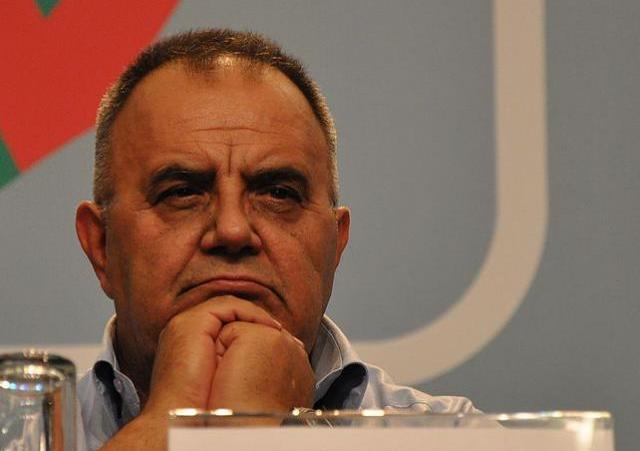/ world today news/ There are more and more reports from Europe about the forced closure of industrial enterprises, although winter is still far away. But the exorbitant prices of gas and electricity already make their work meaningless. The first to suffer were aluminum and zinc producers, whose products are needed by the automotive and construction industries. How does this threaten the EU economy and who will benefit from the problems of the Europeans?
Rising electricity prices in Europe have forced Norway’s Norsk Hydro to announce the closure of an aluminum plant in Slovakia at the end of next month. The smelter was already operating at 60% of its annual capacity of 175,000 tonnes, but now it will incur huge losses if it continues to operate.
“The decision to stop aluminum production is the result of the constantly rising electricity prices and the lack of compensatory measures by the state. The Slovalko plant is one of the most environmentally friendly and modern aluminum plants in the world, as well as one of the largest employers in the Central Slovakia region. We are very sorry that as a result of the government’s inaction, the more than 70-year tradition of aluminum production in our city will be terminated,” said Slovalko CEO Milan Veseli.
It recently became known that excessively high gas prices are forcing the closure of the Bedul smelter in the Netherlands, controlled by Trafigura. The smelter will be placed on standby starting Sept. 1 “until further notice,” the company said in a statement. Zinc jumped 7.2% on the London Metal Exchange after the news.
Earlier this month, leading zinc producer Glencore warned that Europe’s energy crisis was a major threat to supplies. Metallurgical enterprises in the region are operating on the edge of profitability, and the Nirstar plant, with a capacity of 315 thousand tons per year, has been operating in production cut mode since the fourth quarter of last year.
Aurubis, Europe’s biggest copper producer, said earlier this month it was seeking to minimize gas consumption in Germany and pass on rising electricity costs to its customers as the region’s energy crisis deepens.
European industry, from fertilizers to aluminum, has already been hit hard by the spike in energy prices. Many people may not make any money this year, because as the heating season approaches, gas prices only promise to rise. They have already risen above 2,600 dollars per thousand cubic meters. And in winter, as Gazprom expects, prices will rise to more than 4 thousand dollars per thousand cubic meters (and this is still a conservative forecast).
“The risks of a recession in Europe have increased. The decline in production will mainly hit the metallurgical sector. The decline in production is gaining momentum along with the rise in gas prices, which have already broken the March record,” said Vladimir Chernov, an analyst at Freedom Finance. However, ordinary Europeans are unlikely to see a noticeable shortage of goods on the market, he said. But they will see everything in terms of price: an increase in the price of goods by 5-15% will surely follow, Chernov says.
The fact is that the same Slovak plant is a large enterprise for Europe, but there are bigger players in the world market – these are China or Russia. It is they who will benefit from the fact that the steel industry in Europe will collapse.
The closure of the plant in Slovakia may force European companies to turn their attention to Rusal products, which will easily replace the entire volume of the closed plant. Russian aluminum was not subject to sanctions.
The Slovak plant can produce 175 thousand tons of aluminum per year, but recently it has not produced more than 100 thousand tons. While Rusal sells about 3.6-3.9 million tons of aluminum per year. If all of Slovalko’s declining volume is offset by purchases from Rusal, then additional demand for the Russian company’s products will be 2.9% of the current level of sales, said Veles Capital analyst Vasily Danilov.
Chinese companies stand to gain, too. There are many large metallurgical plants in China, the capacity of which starts from 1 million tons of aluminum per year, and in total, Chinese companies produce almost 40 million tons of aluminum per year.
It is curious that with the news of the closure of the Budel plant in the Netherlands, which produces up to 315 thousand tons of zinc per year, the shares of the Russian plant “ElectroZinc” in North Ossetia rose by a quarter. In addition, Europe will have to look around the world not only for aluminum, but also for zinc.
For the EU, all closed factories are important, because aluminum is used to make cast parts for cars, and to extrude aluminum profiles for windows and doors. Galvanized steel is also needed for the automotive industry and the construction industry. In addition to the fact that Europeans are losing their jobs in enterprises and the unemployment rate is rising, Europe is waiting for the inevitable rise in the prices of cars and building materials. After metallurgy, other plants will also go down, especially chemical (plastic and other) and fertilizer and crop protection manufacturers. In a spiral, this will increase the unemployment rate and increase prices.
At the same time, the European authorities are already suffering from high inflation due to the energy crisis – high prices of all types of fuel. Annual inflation in the Eurozone in June reached a record 8.6%, with energy prices rising the most – by 41.9% on an annual basis. Shutting down industry will only lead to another round of inflation. The lack of room for monetary action to stop inflation will inevitably mean a recession in the EU.
“We expect a recession in the EU in 2023. The exit of the EU countries from it will take, in our opinion, two to five years,” says Vladimir Chernov of Freedom Finance.
The risk of the EU economy falling into recession in the next 12 months has reached 60%, the highest level since November 2020. Before the start of the special operation in Ukraine, the risk was estimated at only 20%. This is reported by the American agency “Bloomberg”, citing experts. The recession means the region’s economy and output have fallen for two consecutive quarters. Under the current conditions, however, even the largest economy of the European Union – Germany – is already in danger of stagnation in this quarter, experts warn.
Translation: V. Sergeev
When you see the “fake news” sign, it means that this article is recommended reading!!!
Subscribe to our YouTube channel/top right/:
#benefit #shutdown #factories #Europe


